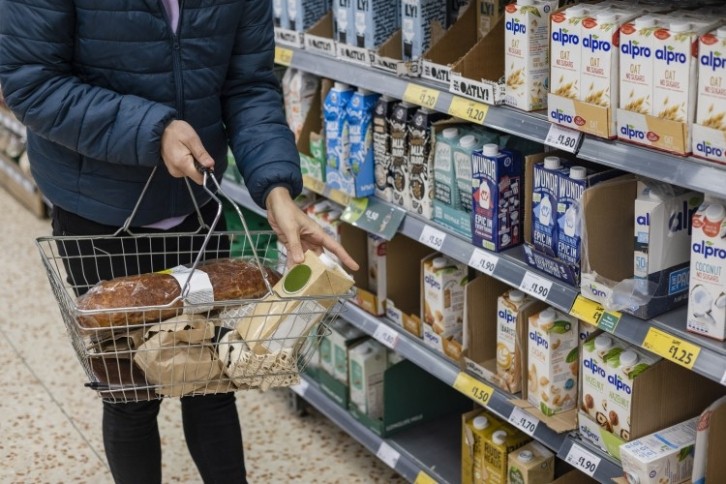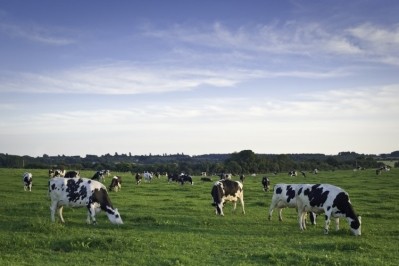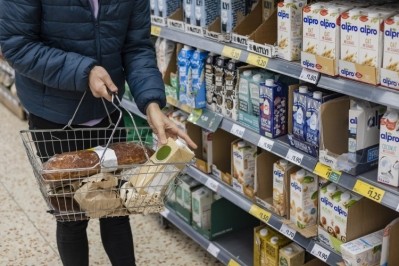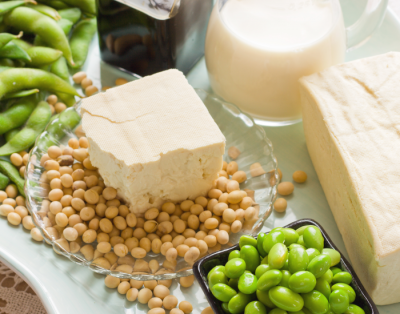‘We do not believe consumers are confused at all’: UK’s plant-based dairy makers bemoan lack of clarity on labeling rules

The possibility of descriptor names such as ‘mylk’, ‘b*tter’, or ‘sheese’ to be banned from featuring on packaging is very real, however. The UK government announced that it would not stand in the way of a draft opinion issued by the Food Standards and Information Focus Group, a group of trading standards officers, who argue that nods to dairy terms in plant-based product descriptions could mislead consumers. While the current rules prohibit the rules of dairy-like terminology, enforcement has not been common practice.
Dairy UK has advocated for the existing rule should be more strictly enforced, having submitted a position paper to the government in support of the FSIFG draft proposals. “The existing law is a reflection of the fact that dairy foods are unique in their nutrient richness and an essential part of a healthy and balanced diet and cannot be replaced by alternative imitations,” the trade body said in a statement.
In the EU, plant-based brands are prohibited from using dairy descriptor names like ‘milk’, ‘butter’ or ‘cheese’, but in the USA, the Food and Drug Administration is considering allowing dairy alternatives to use such terms, as long as the nutritional differences between conventional dairy and the alternative products are highlighted on-pack.
But in the UK, plant-based product makers are worried that trading standards officers could be instructed to start enforcing what they call a ‘restrictive’ rule, if the FSIFG opinion is made official guidance. The FSIFG told The Times last month that its opinion ‘was not final’ and that it would consult plant-based companies.
We asked the Plant-based Food Alliance, a coalition of organizations from across the UK plant-based value chain, if the body itself or any of its members had yet been consulted on the proposals.
Marisa Heath, chief executive of the organization, said the Alliance had been aware of the FSIFG draft opinion since last year when the organization ‘actively lobbied to stop imminent publication’. “We only became aware of it by accident as we were not invited to engage nor were consulted despite the potential of a significant impact on our sector,” she told us. “We did reach out the FSIFG and had a couple of Zoom meetings to discuss the draft, however we have not been invited yet to formally consult and give views. I have emailed them since The Times article, asking how they plan to consult as stated in that article.”
Heath said the organization had seen a copy of the FSIFG draft opinion, which is not publicly available, but did not know if it had changed since then or what the current position was. “We do know that Defra has decided they do not hold any responsibility and will not do anything to stop the FSIFG publishing when they decide to do so as they wrote to some of our businesses stating this,” the chief executive added.
“On the copy we have seen, it introduces elements which we believe increase the restriction placed on the plant-based sector. That is why we believe this is creating new policy, which should only sit with government and in a democratic arena. Trading standards have not enforced for over 20 years, and previous guidance was not to enforce if consumers were not misled.”
“The plant-based sector’s key USP is that it distinguishes itself from animal-based dairy and that it is clear that it is not animal-derived, so we do not believe consumers are confused at all.”
The Plant-based Food Alliance thinks the government should review the existing regulation and set out a ‘workplan for modernization’ to address the significant changes in the UK food system. “Other countries have moved on so that the EU and the US have a more modern and less restrictive approach,” Heath explained. “Plant-based alternatives are even allowed to call themselves ‘milk’ in the US, so the fact we are looking to enforce against terminology like ‘mylk’, ‘sheese’ and ‘alternative to cheddar’ makes us seem very backward and not welcoming to food innovators in this space.”
Asked what the repercussions to the plant-based dairy alternatives sector could be should the draft opinion become official guidance, Heath explained manufacturers could face legal issues and packaging changes ‘could break some of the SMEs’.
“The Alliance is really keen to work across the food sector including with dairy companies, some of which have plant-based brands within their portfolios. Ultimately, the main conversation needs to be around how we all deliver a sustainable, healthy food system for consumers, rather than focusing on niche issues like the misspelling of ‘milk’. This is wasting focus, resources and damaging the UK reputation as a place to come and work on novel foods – even for those that are not in the plant-based space, this is rocking the boat and showing that the UK is not a stable environment.
“We really want to be constructive and pragmatic and just want to have the conversations that enable the whole UK food space to flourish, offer huge choice to consumers, be more sustainable and enable a growing export market bringing money to the country.”








